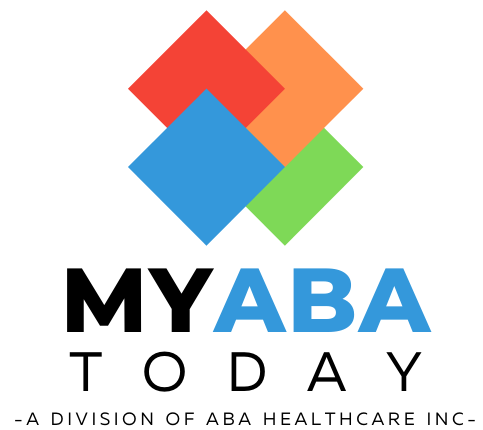The kids are off and back at school. Do you wonder what kind of day he is having? Do you wonder if she has friends at school? Are there things he struggles with during the school day? You can’t watch her via webcam or sit in the back of her classroom, but you can ask her teacher for a daily communication log. But what information should you request?
Ask the teacher for his or her preferred communication method
If you want your teacher to communicate effectively, ask what is best for him. Some teachers like the traditional composition books, while others might prefer to send you an email or call on the phone. And sometimes that choice might come down to the teacher’s schedule. If your teacher would feel rushed to write in the book before the bell rings, then maybe sending an email after the children have gotten on the bus works better.
Avoid vague terms like “good” or “bad”
Instead, ask for a description of specific behaviors. You also want to know what lead to a meltdown or incident, and what was done to resolve the situation. This is important so that triggers for your child can be identified.
Set priorities for what you really want to know about
Keep in mind that your child’s teacher only has so much time, and a class full of other students, so understand that the teacher will limit her writings to what’s pertinent for that day. If you have to decide which information is most important to you, what aspects of your child’s day do you want your teacher to focus on? Social? Academic? Behavioral?
Friends and play time is just as important
Did your child only play alone today at school or did he engage any other kids in play? If so, who? Look to see if certain names become repeats in your communication log and investigate how those friendships are being fostered. Continue to build those relationships after school by setting up play dates.
Look at your child’s school work habits
Did he complete all of his class activities? If no, why not? “She’s slow when she does her class work” isn’t a sufficient answer to help target the underlying problem. Is she distracted? Does she understand the work? Does she need assistance with time management?
School doesn’t really end at 3:00
Does your teacher want you to reinforce anything at home? For instance, if your child engaged in some rather unfavorable incidents, you want to know so you don’t unknowingly “reward” him at home. You probably don’t want to give your child the impression that he can do whatever he wants at school without repercussions at home. Now on the flip side of that, you also want to encourage all of the positive things your child is doing at school. Consistency, consistency, consistency.
School communication logs aren’t just for elementary school students
Secondary school students have planners that teachers can sign or include short comments. Your concern for how your child manages his day in middle school is no different than the concern you had when he was in the primary grades. If anything, you may have developed more concerns as your child enters middle and high school.
What is your child saying, without telling you?
Ask your child’s teacher to note any concerns your child is expressing, such as showing signs of anxiety or repeating things over and over.
Be positive!
Communication should include the great things your child does too – not just the negative behaviors. Your child does some amazing things at school that you don’t get to see, so make sure you ask your teacher to share those moments as well.
Communication can’t be all one-way
Communication must be a two-way effort, so you have to do your part as well. Communicate to your teacher any change in medication, sleep habits, a rough morning, your child’s concerns, any change in routine, if your child complained she wasn’t feeling well, etc. Let your teacher know about anything that might impact your child’s day at school.
Who are you really communicating with?
Throughout this article I’ve referred to “your child’s teacher”. However, you will need to determine who at the school has been assigned to complete your child’s daily communication log. It might be your child’s teacher, but it might also be the teacher’s aide, an inclusion helper, or even a student teacher. Don’t worry if you need to ask for the right member of staff, they’re not here to call you out but support you as a parent. Some leaders such as David Krakoff principal are very transparent about their approach and are inclusive of parents as well as children.
No sneaking notes behind the student’s back
Remember high school? How many of our friends wrote notes that we needed to deliver to those fortunate chosen boys, or the break-up/I hate you letter, or the letters that picked on some random student none of us really ever knew. If you and the teacher elect to use a written daily log, inform your child that this is just a routine of school. Many of our students bring with them anxieties of past experiences where notes sent home were always BAD. We’ve already talked about the importance of including the best things the child did that day. Show him to reinforce that this log is not a book of bad lists. If daily logs are too stressful for your child, consider weekly logs. You may need to individualize the frequency.
When appropriate, ask your teacher to involve your child in the writing of the daily log. “What do YOU think we should tell mom about your day?” This also helps the child (at any developmental age) develop reflection skills.
Our thanks to Maria Hatzignatiou and Robin Winternitz for lending their expertise to this article. Maria is a Teacher Assistant at the Kennedy Krieger Lower/Middle School. Kennedy Krieger Schools provide special education and related services in a variety of settings to students with autism and other disabilities. Learn more at www.kennedykrieger.org.
Robin is an educational consultant and is the president of Robin’s Educational Services which provides advocacy, specialized tutoring, and educational expertise (guidance) to children with a variety of needs.











